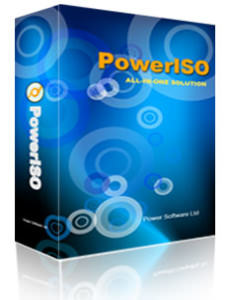Domain Authority: How to Get to the Top
Authority is something we experience every day, and it is necessary for all aspects of life. The rapid growth of the internet has spawned a need for online authority as well. Rank metrics, like Moz’s Domain Authority, have become well-known names within the Search Engine Optimization (SEO) industry, and web developers, business owners, and online professionals are all equally eager to improve their search engine rankings. But before we can start working on how to achieve the best domain score for your website, let us take a look at the history of Domain Authority as a whole.
The story behind Domain Authority

From a business’s standpoint, authority can be seen as the right to give orders, the supervision of work, and the power to make calculated decisions. It is based on the recognition of the legitimacy of the attempt to exert influence and used to be the basic element that made an organization work smoothly and efficiently. Today, a lot of business is done online, and online real estate is more important than ever. Therefore, SEO experts realized the need for a metric that measures the power and influence of a website. Domain Authority was first invented by Moz, a service company based in Seattle, as an algorithmic score to measure the relative “importance” of a website. The primary purpose of any ranking or authority metrics is to mimic a search engine ranking algorithm.
The developing company itself describes the Domain Authority as follows, it “is based on data from our Link Explorer web index and uses dozens of factors in its calculations. The actual Domain Authority calculation itself uses a machine learning model to predictively find a ‘best fit’ algorithm that most closely correlates our link data with rankings across thousands of actual search results that we use as standards to scale against.” To paraphrase, it is a mathematical way of predicting how well a specific website is going to rank on search engines like Google or Yahoo. Put even more simply, the higher your Domain Authority is, the more likely you are to earn a higher search engine ranking, which can also result in receiving more web traffic.
How is Domain Authority calculated, and why is it so important?
The Domain Authority score is, by far, the most accurate representation of search results and makes it easier to understand how Google or other search engines rank websites. Since the introduction of the Domain Authority, the score provides insights into how well a website might rank against the competition. You can choose between a multitude of companies that offer ranking metrics like Majestic’s Trust Flow and Citation Flow, or Ahrefs’ Domain Rating. The criteria for the calculations differ a bit from tool to tool, but they all measure a website domain’s SEO power. Moz, as the originator, still offers the highest authority among them.
According to Moz, they evaluate the Domain Authority of a website by using 40 different factors, such as the total number of unique backlinks, called Root Domains. That means it does not matter how many different links a website earns from the same site; it will always be considered only one link. On the other hand, receiving fewer links, but from different websites, will result in a higher overall ranking. Moz uses the MozRank metric to score the strength, which is the number as well as the quality of links that are pointing back to the site. Keep in mind that a single high-quality external link is better than multiple low-quality links. The MozTrust, on the other hand, looks at how closely a website is related to trusted sites. The quality of the content and how search engine friendly a website’s structure is are also vital. If the site is challenging to navigate, it makes it difficult for search engines like Google to crawl and index the website. The Domain Authority is an excellent way to measure SEO efforts and plan them accordingly for the future.
To discover the Domain Authority of a website, you can use the Moz Link Explorer tool, the MozBar, within the free SEO toolbar. Since Moz is a premium tool, you can also use free DA PA checker for the same results. Interestingly, unlike Moz, this DA checker also allows to check domain authority of bulk domains. The Domain Authority metrics are updated in real-time as links are being recognized, but the Mozscape Index (link analysis data) is only updated roughly every month. Domain Authority is based on machine learning calculations; therefore, the score fluctuates as different data gets used for the count. Based on this, a rating from one to 100 is issued using an algorithm. A higher score stands for a more valuable and trusted website that is more likely to have a high search engine ranking, while a lower score describes a weaker website.
But what is considered a decent Domain Authority ranking? A score as low as 20 or below is deemed to be weak and needs improvement. Once you reach a score of 30, your website starts to gain value, and scores within the 50 to 60 zone are considered strong. Everything above 60 can be viewed as excellent. Generally, it is easier to improve a lower score by some points than it is to gain additional momentum on an already high score. According to this article, Domain Authority is measured logarithmically, meaning that the difference between a score of 50 and 60 is much more significant and harder to achieve than between 20 and 30.
Achieving a perfect score of 100, however, is almost impossible. Only websites like Google, Apple, or Youtube have enough overall authority. An equal amount of responsibility always accompanies authority. Websites with high Domain Authority are responsible for setting a good example.
What is the difference between Domain Authority and Page Authority?
Page Authority is a similar metric that was also developed by Moz, and it works precisely as one would imagine: Whereas Domain Authority measures the predictive ranking strength of entire domains or subdomains, Page Authority predicts how well a specific page will rank on search engine result pages. Page Authority has a direct impact on your Domain Authority which makes it just as important for the overall search engine ranking.
To calculate the Page Authority, a similar scale is used. Moz is continuously updating the algorithm, but some of the ranking factors used to determine the page authority are social signals, root domains and subdomains linking to the page as well as root domains using partial match anchor text, high-quality websites linking to the page, or, last but not least, external links.
How can you improve your Domain Authority?
Domain Authority doesn’t build itself up overnight, and many factors influence the score of a website. You have to keep an eye on maintaining high-quality content, loading speeds, and a well-thought-out SEO strategy, just to name a few. If you have not registered a domain name yet, pick a name that is relevant to the topic of your website and choose the company you work with wisely. Sites like 101domain not only offer a wide selection of ccTLDs as well as new gTLDs, they can also provide hosting and security features.
Below you will find tried and true tips to establish or improve a website’s authority over time by earning high-quality backlinks and much more. Remember, above all, to be patient.
Backlinks: Gaining backlinks from websites with a high Domain Authority are vital for your own score. At the same time, you should make it your mission to remove toxic or broken backlinks from low-quality sources regularly. It is essential to clean up your link profile periodically by performing a link audit.
Content Creation: In order to gain backlinks from reputable websites and reach a high Domain Authority, you also need to create high-quality content. Concentrate on content that is either relevant for your brand or a specific niche.
On-Page Content: You can optimize your on-page content by including title tags as well as image alt tags, and variations of your main keywords. Keep everything up to date.
Internal Linking: By improving your internal link profile, you will enhance the user experience at the same time, and keep website visitors engaged. It creates a robust network within a website that can help search engines that crawl and index the site.
Mobile-Friendly and Loading Speed: To avoid high bounce rates due to poor loading times or a website that does not support mobile use, you have to offer a mobile-friendly page that loads fast no matter the device.
**Bonus Tip: SEO Plugins! Part of the battle is finding the right tools to help you raise your overall authority. There are myriad SEO tools at your disposal, some of which can be built right into the fabric of your website. Make sure to check out pages like this one to find out which plugins are best for 2020.
In the end, to improve your score, you need to take a look at your overall SEO efforts and make sure that all the details like the site structure, meta tags, or keywords are pulling together.



